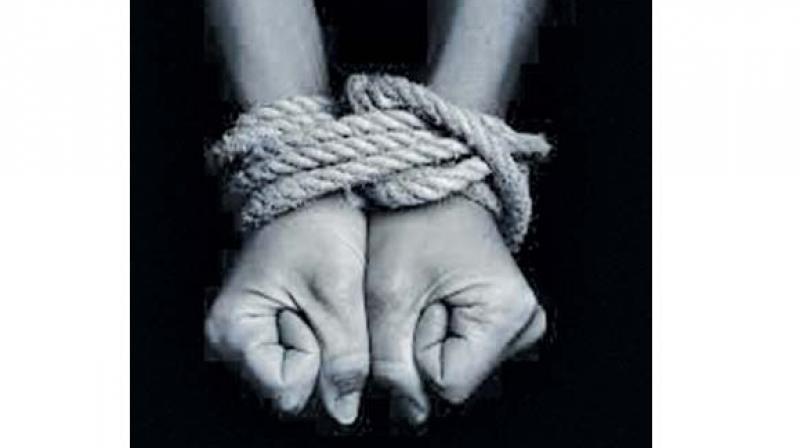Anti-trafficking bill bound to nail offenders and rehabilitate victims
The Bill requires cooperation between the bureau, law enforcement agencies, NGOs and other stakeholders.

Chennai: With the Trafficking of Persons (Prevention, Protection and Rehabilitation) Bill, 2018 pending before the Rajya Sabha, Deccan Chronicle gets in touch with experts to understand why this Bill is the need of the hour.
Lawyer Richard Ebenezer says, “The Bill calls for establishing exclusive bureau, which will lead to quality investigation. The bill also ensures protection to and rehabilitation of victims.”
Support is enormous for the Bill as rehabilitation is the core component and it is not contingent on criminal proceedings initiated against the accused.
The Bill which was introduced in the Lok Sabha by the minister of women and child development Maneka Gandhi in July 2018 requires the central government to provide a National Anti-Trafficking Bureau comprising police officers and any other officers of appropriate rank as may be necessary, who will investigate trafficking cases and implement provisions of the Bill. The function of the bureau is “coordinating and monitoring surveillance and preventive efforts along known routes.” It will also facilitate “surveillance, enforcement and preventive steps at source, transit and destination points.” The Bill requires cooperation between the bureau, law enforcement agencies, NGOs and other stakeholders.
As traffickers are increasingly using advanced digital technology, the intelligence apparatus will have to improve “collection, collation, analysis and dissemination of operational intelligence”.
There will be cooperation and coordination with the authorities concerned in foreign countries for investigation and mutual legal assistance.
The key requirement of the Bill is facilitating inter-state and trans-border transfer of evidence and materials, witnesses and others, to expedite prosecution. A database of crimes under the Act will be created and monitored
The Bill mandates setting up of Anti-Trafficking Units at state and district level to prevent trafficking, do rescue work and provide protection to victims and witnesses. Probe and prosecution in trafficking offences will also be done by the ATUs.
A police officer, who did not want to be quoted, said, “The anti-trafficking unit is working with its existing strength. More people are required to serve exclusively for the ATUs.”
Anti-Trafficking Relief and Rehabilitation Committees will be set up to work out compensation for victims, repatriation of foreign nationals and reintegrating victims in society.
Giving care, protection and rehabilitation to victims forms the core component of the Bill. It necessitates government setting up protection homes which will provide shelter, food, counselling and medical services. Rehabilitation homes are to be maintained in each district and rehabilitation will not be dependent on criminal proceedings against the accused or the results of such proceedings.
Stress is laid on another important provision of the Bill. The ATU can rescue persons without any delay if it is necessary, especially if there is imminent danger to the victim’s life. He/she should be produced before a magistrate or the child welfare committee, and medical examination must be carried out to assess the age of the victim and any trauma or illness she/he may have.The Bill also aims at providing a time-bound trial. Designated courts set up in each district, under this Bill, will seek to complete the trial within one year.

